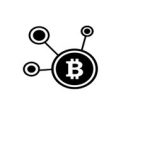 Bitcoin is a new form of currency that was launched in 2009 by an anonymous individual who went by the name Satoshi Nakamoto. It is a form of completely anonymous online currency that can be transferred from person to person without a middleman. Other forms of currency are controlled by governments and banks, but no one group owns Bitcoin. Most people use Bitcoin for online exchanges, but it can also be used for some in-person transactions.
Bitcoin is a new form of currency that was launched in 2009 by an anonymous individual who went by the name Satoshi Nakamoto. It is a form of completely anonymous online currency that can be transferred from person to person without a middleman. Other forms of currency are controlled by governments and banks, but no one group owns Bitcoin. Most people use Bitcoin for online exchanges, but it can also be used for some in-person transactions.
Like any currency, the value of Bitcoin constantly changes, but it is much more volatile than other currencies. When it was first launched in 2009, one Bitcoin was worth much less than a dollar. In 2013, the price of one Bitcoin reached $1,200, and as of 2016, one Bitcoin costs between $500 and $600. You can buy and sell fractions of a bitcoin up to 8 decimal.
Every Bitcoin has a public address and a private key, both of which are long combinations of letters and numbers that act as unique identifiers, like fingerprints. Public addresses are randomly generated for each user when they receive a Bitcoin. Just like sending an email, the sender uses the recipient’s address to send the currency. Unlike email, however, you should generate a new address for each Bitcoin you receive. The private key is like a password that is needed to perform any transactions with the Bitcoin. Only the owner of the Bitcoin should know the private key.
All Bitcoin users have a digital wallet that stores the Bitcoins, the public addresses, and the private keys. Transactions are recorded in the block chain, which is maintained by a computer network that reaches across the world. All past transactions and addresses can be accessed through the block chain.
For Bitcoins to come into circulation, they first have to be created. Bitcoins are generated through mining, which is the process of using computers that run Bitcoin software to solve complicated math problems, or blocks. Every time a Bitcoin transaction occurs, these math problems are created and must be solved in order to complete the transaction. Bitcoin mining computers need more power than regular computers can offer, so people who mine Bitcoins usually buy mining machines or work together with other minors and chain several computers together.
On average, it takes about 10 minutes to process and confirm a block. When a bitcoin miner successfully solves a block, new Bitcoins are generated and given to the miner as payment. This way, new Bitcoins can enter circulation in an organized, controlled way. Over time, the rate that new Bitcoins enter the system slows down. Once 21 million Bitcoins have been mined and enter circulation, no more will be produced. This keeps the Bitcoin supply under control.
Some people invest in Bitcoins in the hopes that the value will rise and they can sell them for a profit. Others just purchase Bitcoins to use for transactions. You can buy and sell Bitcoins through a number of different exchange companies including BTC China, Coincheck, and BitStamp. Most of these sites will require you to create an account with a username, password, and bank account number. After being verified, you can either list your Bitcoins for sale or buy new ones.
You can also choose to buy and sell Bitcoins privately or offline. To sell privately, you must write down the public address and private key and give the information to the person you are exchanging with.
Using Bitcoins for online transactions is much more common than for in-person transactions. However, some merchants do accept Bitcoins, and the list of businesses that accept the currency has grown over time. You can use Bitcoins to purchase many types of goods and services, including gift cards, plane tickets, food, and crafts.
Because it takes about 10 minutes to mine each block, transactions usually takes about 10 minutes to finish. Some merchants will require the buyer to wait to accept the good or service until the transaction finishes. Others will allow the buyers to take the good or service immediately without waiting, taking the chance that the transaction will not go through.
You can purchase Bitcoins from an exchange company or from an individual seller, and you can exchange them for goods and services. It has fewer transaction fees than most other methods of paying online, and the person-to-person transactions are simpler than using a bank or another third party. To use your Bitcoins, all you need is the address and the private key. Once the transaction is complete, it is recorded in the block chain, but it cannot be tracked back to you personally. Because Bitcoin is a relatively new form of currency, its usage may change over time. For now, though, it is an ideal currency for people who want to perform transactions online without a middleman.



